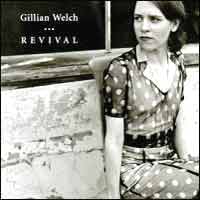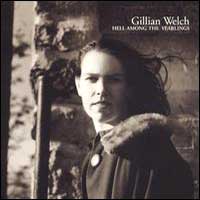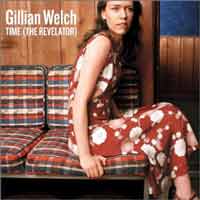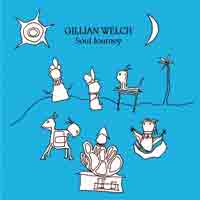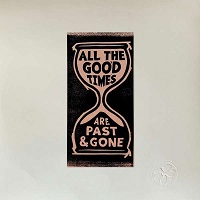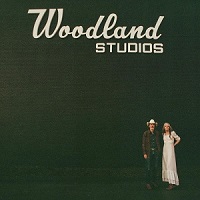Rückkehr nach tatsächlich 8 Jahren Pause. Und für meinen Geschmack wirklich besser denn je, fast so etwas wie eine (unverzichtbare!!) Quintessenz ihres Schaffens. Niemand verarbeitet z.Zt. alte Country-/Mountain Folk-Traditionen schöner faszinierender, betörender, und das in durchweg eigenen Songs, unverwechselbar, ganz individuell. Daneben steht völlig zeitlos wirkender schlicht-raffinierter Songwriter-Folk höchsten Kalibers. 1x klingt das beinahe wie akustische Grateful Dead ca. 1970. 2 exzellente natürlich fließende feinst kooperierende Akustik-Gitarren, ab und zu Banjo oder Harmonica reichen als Begleitung ihrer so bewegenden Stimme aus, die hier mehrfach seltsam wie wunderbar gedehnt, irgendwie feierlich klingt, David Rawlings (einziger Mitmusiker) steuert seine typischen einfühlsamen ganz sachten Harmony Vocals bei. Diese Musik besitzt unendlich viel Tiefe und Substanz, Scarlet Town, Dark Turn Of Mind, Down Along The Dixie Line und Six White Horses gehören zu den besten Songs des ganzen Jahres! Herrlich!
(dvd, Glitterhouse)
Before we go any further, before we address anything, I’d like you to forget. Maybe forget what Gillian Welch shows you’ve seen, the floorboards all sparking from the weight of these two souls, Gill and Dave, and their four collective cowboy-booted soles; maybe forget when you first heard “Orphan Girl,” that song that seemed to exist outside of time and caused everyone who heard it to become the itinerant, the loner, the longing; maybe forget the years that have passed when last a new Gillian Welch record graced the hi-fi’s of the music-listening world – forget the pop stars risen and erased in those years, the administrations and regimes born and gone in those years – forget, indeed, that there are eight of them, eight years, since Soul Journey arrived into the world.
The Harrow & The Harvest, Gill and Dave’s new record, is both a product of and is unrelated to those years in-between. Best to forget that. What it is, indisputably, is the product of two people who have become so entwined in one another that the songs and the singing and the playing on this record seems to exude from a single voice. This is the sound of two people in a room, playing to one another, with one another. This is the sound of the room in which the two people are playing. This is the sound of two voices, locked in unison, locked in harmony. The sound of two people playing live, with no overdubs, and very few takes. Two people making music together as if they were one soul combined.
(gillianwelch. com)
„The Harrow & the Harvest, her first album in eight long years, is perfectly timed to coincide with the tenth anniversary of O Brother and the success of such acts as the Civil Wars and Mumford & Sons, who owe her a considerable debt. Retreating from the full-band sound of 2003’s Soul Journey, these new songs are defiantly spare and spectral, featuring mostly the dueling guitars and voices of Welch and longtime partner Dave Rawlings. Their playing sounds tighter and more intuitive than ever, opening up songs like “Down Along the Dixie Line” and “The Way It Will Be” and setting their elegant guitar lines—picked more often than strummed—at eloquently cross purposes.
Sonically, this modest accompaniment is designed to evoke not the dusty, distant past nor the immediate present, but something in between, some half-imagined or -remembered moment and place. There’s no cheap nostalgia or easy sincerity, which wrecks most of Welch’s acolytes, namely Mumford & Sons. In fact, when the music becomes more prominent, the album veers toward country kitsch. Banjo, handclaps, and harmonica almost drive “Six White Horses” into the ditch of pastiche, but Welch wisely follows it with the peaceful, easy “Hard Times,” about a man and his trusty mule. “Hard times ain’t gonna rule my mind no more,” she and Rawlings sing delicately together, righting the album and setting up an easygoing, yet quietly affecting finale.
Welch has always been a strong character songwriter, inhabiting her songs almost as a means of absenting herself, but the details in these songs feel studied, purposeful, and specific to her cast of hard-luck wanderers and outcasts. “Tennessee” is a full Southern gothic novel compressed into six minutes, beginning with the narrator’s expulsion from Sunday School and ending with “sweet heaven when I die.” In between there’s so much understated lust: “I had no desire to be a child of sin,” she sings, “Then you went an pressed your whiskers to my cheek.”
It’s a rich portrait, full of unexpected imagery and odd turns of phrase, which means that even though Welch has sung about drunks and prodigals so many times in the past, the songs on The Harrow & The Harvest sound both pleasingly familiar and starkly new, as if her unique vision of Americana contains an inexhaustible cast of eccentrics and an unending narrative from which she can harvest the most harrowing arcs.“
(American Songwriter)
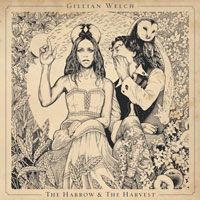 #9 in Jahresliste
#9 in Jahresliste  Plattentipp
Plattentipp 
